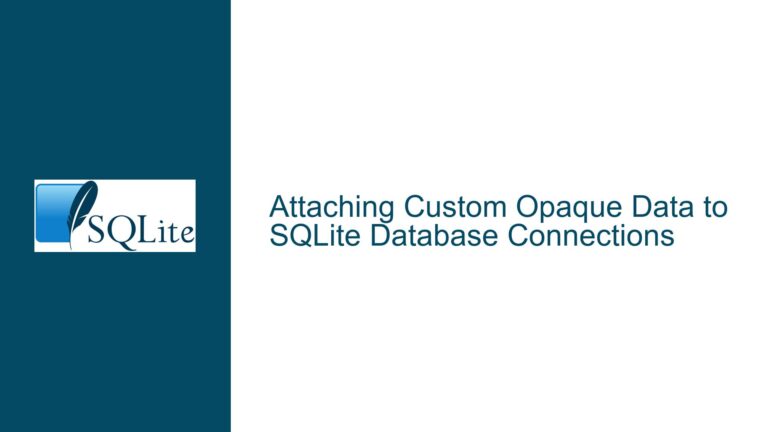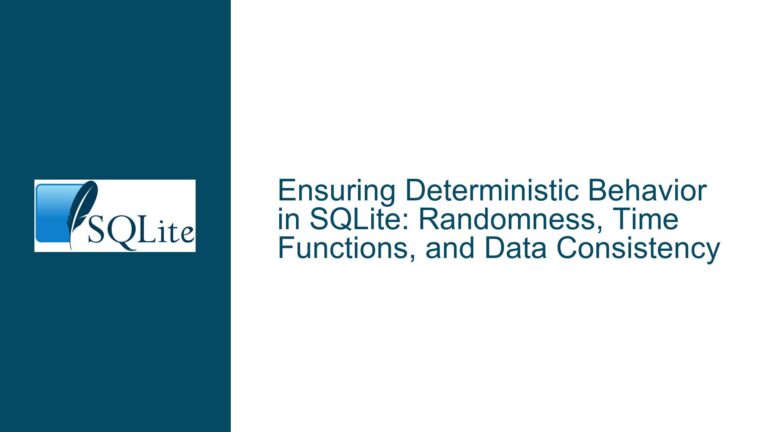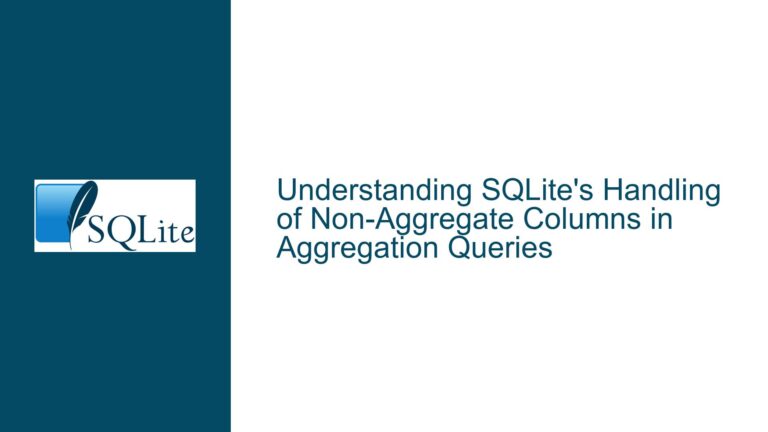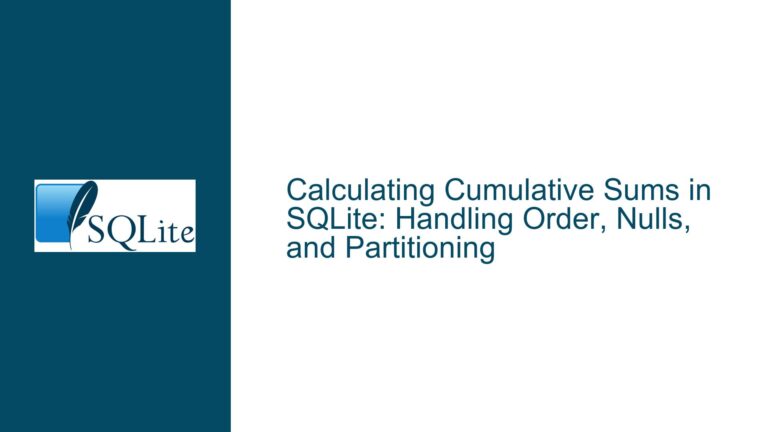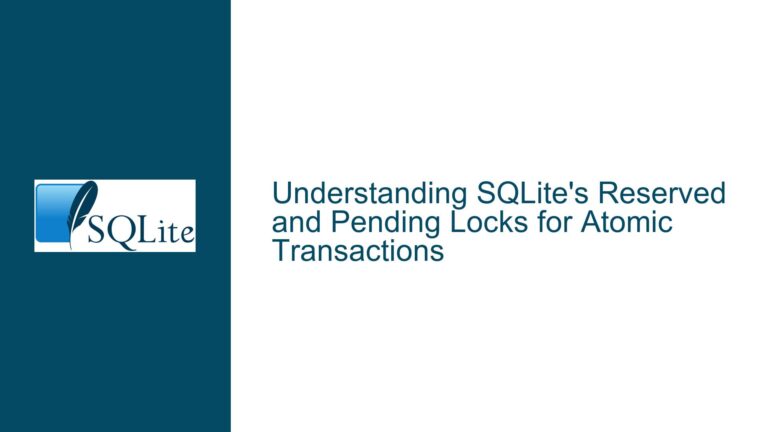Implementing SQLite Database Authentication in Node.js Without C-Level APIs
Understanding SQLite’s Authentication Model and Limitations SQLite is a serverless, file-based database system designed for simplicity and lightweight operation. Unlike client-server databases (e.g., MySQL, PostgreSQL), SQLite does not natively support user authentication through SQL statements such as PRAGMA. Instead, access control is managed at the file system level: any process with read/write permissions to the…


